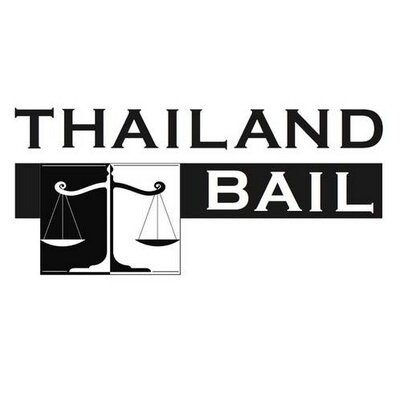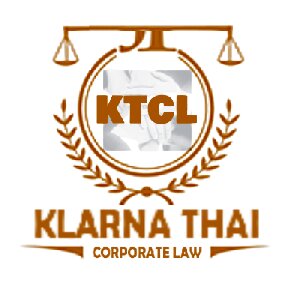Best Juvenile Law Lawyers in Thailand
Share your needs with us, get contacted by law firms.
Free. Takes 2 min.
Or refine your search by selecting a city:
List of the best lawyers in Thailand
About Juvenile Law in Thailand
Juvenile Law in Thailand focuses on legal issues involving minors typically aged seventeen and below. Thailand's Juvenile and Family Court system addresses matters such as delinquency, family welfare, child protection, and adoption. The overarching goal of this legal framework is rehabilitation over punishment, emphasizing the best interests of the child. Rather than imposing harsh penalties, the system aims to reintegrate minors into society as law-abiding citizens.
Why You May Need a Lawyer
There are several situations in which legal guidance may be beneficial in the context of Juvenile Law in Thailand:
- A minor has committed an offense and is facing legal proceedings. Legal representation can ensure that the child's rights are upheld and provide counsel on the best course of action.
- Parents or guardians dealing with child protection cases or disputes involving welfare services may require legal advice to navigate the system effectively.
- Adoptions and custody disputes may also demand specialized legal assistance to ensure compliance with applicable laws and the best outcome for the child.
- Cases of alleged child abuse or neglect involve complex legal considerations where a lawyer can advocate for the child’s best interests.
Local Laws Overview
The Juvenile and Family Court and Juvenile Procedure Act B.E. 2553 (2010) is the primary legislation governing juvenile justice in Thailand. These key points are of particular relevance:
- Minors handled in specialized juvenile courts emphasize correction and environmental improvement over punitive measures.
- Investigations and trials are conducted with the presumption of privacy, aiming to minimize distress for the minor involved.
- Probation, education, and rehabilitation programs are prioritized over detention.
- Parents and guardians play an integral role in the legal process, aiding in assessments and rehabilitation plans.
Frequently Asked Questions
1. What age is considered a minor in Thailand for legal purposes?
In the context of the juvenile justice system in Thailand, individuals under 18 years of age are considered minors.
2. What is the purpose of the Juvenile Court in Thailand?
The Juvenile Court focuses on rehabilitating minors by offering guidance, education, and care. Its aim is to reintegrate young offenders into society positively.
3. Can a minor be tried as an adult in Thailand?
In certain serious cases, juveniles aged over 17 may face adult court proceedings, but this is relatively rare and usually depends on case specifics.
4. What rights do minors have if arrested?
Minors have the right to legal representation and to have a parent or guardian present during interrogations and legal proceedings. The process prioritizes the child’s welfare and confidentiality.
5. How does the Thai legal system handle juvenile delinquency?
The focus is on rehabilitation rather than punishment. The system uses probation, educational programs, and counseling to guide juveniles towards improved behavior.
6. Are juvenile records in Thailand public?
No, juvenile records are not public and measures are in place to ensure the privacy of involved individuals.
7. Can decisions by the Juvenile Court be appealed?
Yes, decisions can be appealed at a higher court similar to adult cases.
8. What are the consequences of a juvenile criminal record in Thailand?
Juvenile records are generally not disclosed and do not carry the same long-term repercussions as adult records, particularly due to the focus on rehabilitation.
9. How do custody and welfare laws apply to minors?
In custody disputes, the child's best interests are paramount. Welfare laws aim to protect and promote the well-being and safety of minors.
10. What happens if a parent cannot appear in court with their child?
A guardian ad litem or a representative from a child welfare agency may be appointed to represent the child's interests in court.
Additional Resources
Here are some resources and organizations that may provide further assistance:
- The Thailand Ministry of Justice, which oversees legal practices including juvenile justice.
- Child and Family Welfare Service Centers, available in major cities, offering guidance and support.
- NGOs such as The Foundation for Child Development, which can provide legal advice and child advocacy.
- Legal aid clinics at universities and independent bodies offering free or low-cost legal assistance.
Next Steps
If you or your child are involved in a legal issue within the realm of Juvenile Law in Thailand, it is crucial to seek the assistance of a qualified lawyer. You can:
- Contact a legal professional specializing in juvenile cases to discuss your specific situation and options.
- Reach out to governmental or non-governmental child welfare organizations for initial advice or support.
- Investigate local legal aid services which may offer free or affordable consultation suited to your needs.
- Prepare necessary documentation and information regarding the incident to facilitate legal consultation.
Proactive steps will not only help to protect the legal rights of involved minors but also pave the way for a more positive outcome.
Lawzana helps you find the best lawyers and law firms in Thailand through a curated and pre-screened list of qualified legal professionals. Our platform offers rankings and detailed profiles of attorneys and law firms, allowing you to compare based on practice areas, including Juvenile Law, experience, and client feedback.
Each profile includes a description of the firm's areas of practice, client reviews, team members and partners, year of establishment, spoken languages, office locations, contact information, social media presence, and any published articles or resources. Most firms on our platform speak English and are experienced in both local and international legal matters.
Get a quote from top-rated law firms in Thailand — quickly, securely, and without unnecessary hassle.
Disclaimer:
The information provided on this page is for general informational purposes only and does not constitute legal advice. While we strive to ensure the accuracy and relevance of the content, legal information may change over time, and interpretations of the law can vary. You should always consult with a qualified legal professional for advice specific to your situation.
We disclaim all liability for actions taken or not taken based on the content of this page. If you believe any information is incorrect or outdated, please contact us, and we will review and update it where appropriate.
Browse juvenile law law firms by city in Thailand
Refine your search by selecting a city.
















